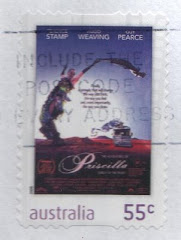I just finished the excellent book 'The life you can save' talking about how to alleviate world poverty by Peter Singer I got acquainted to (his readings) while I was studying International Relations.
What struck me is how simple it could be...
Solution 1 - If we calculate how much income falls below the poverty line in the world, and then how much money it would take to move all the poor above this line to the level they have enough to meet their basic needs, it would be 124 billions USD (2001, Jeffrey Sachs)
The annual gross annual income of 22 OECD nations is 20 trillions USD, therefore the contribution needed is 0.62% of income (less than 1%). For someone who earns 50K a year, this means $300 !
By comparison, in 1999, Americans spent 116 billion USD on alcohol (Journal of medical association, 289, 2003 pp989-95)
So all it would take to end world poverty is that OECD country people ask their employers to implement a opt-out solution (meaning you have to explicitly say no if you don't want to participate) to take 1% off their salary (unless they explicitly say 'no'). He explains that this is already done by some US companies, and it was modelled out of the organ donor scheme in Austria which saw more than 90% accepting to give organs in case they die thanks to an 'opt-out' solution as opposed to 17% in a similar country, Germany only because in Germany it is voluntary (as opposed to opt-out).
Another advantage of this solution is that you can use it as a much needed and valuable team building tool in companies: employees will have something worthwhile talking about at coffee breaks, when they will have to decide in which fund they should put their common money. Peter Singer explains that although many people do make donations on their own, they don't talk about it as not to 'offend' or as not to seem 'counter mainstream'.
or
Solution 2 - We see a massive pledge in the West of stopping alcohol & soft drink consumption. I propose that every time you compulsively wish to buy a beer or a soft drink, you press on a three dollars button on your 'Save the world' phone app, and we will get to 124 billions easily ... at the same time, we sort out road death toll, obesity and domestic violence seriously ... real problems!
This would not solve the world poverty permanently, but it would save lives. Of course the solutions are more complex than that and multifaceted... but that is another few chapters of Peter Singer's book, 'The Life you can save'.
If you wish to meet the standards, visit www.TheLifeYouCanSave.com (Peter Singer)
Is 1% too much?
Well, let us be reminded that the large world religions had worked it out before the economists:
'your surplus at the present time should supply their needs, so that their surplus may also supply your needs, that there may be equality' (Paul, in the second letter to the Corinthians)
Same thing with Judaism. The Hebrew word for 'charity', tzedakah, simply means Justice. In the Talmud, it is said that Jews should give 10% of their income as tzedakah.
In Islam, the requirement is to give 2.5% in addition to sadaqa, which would resemble more voluntary work (optional)
What are we talking about when we talk about poverty here?
Don't read this if you are afraid of the truth ... (aren't we all)
We are talking about 24 000 children who die from avoidable causes every day
We are talking of the millions of women who are living with repairable fistulas
We are talking about the millions of people who are blind but who could see again
The good news
We can do it. In 1960, 20 million children died before their 5th birthday because of poverty. In 2007, it is 10 million a year with a population that has more than doubled (UNICEF figures)
Yet, the 10 million remains a tragedy in a world where these lives could be saved a the cost of few less damn soft drinks a year for the wealthiest.
As Peter Singer says, 'if you are paying for something to drink when safe drinking water comes out of your tap, you have money to spend on things you don't really need'
